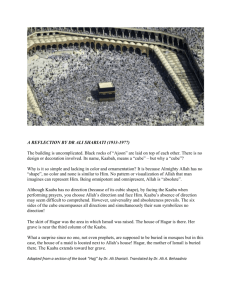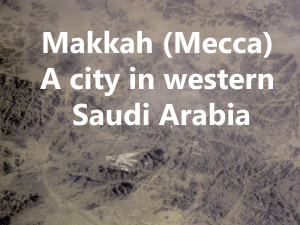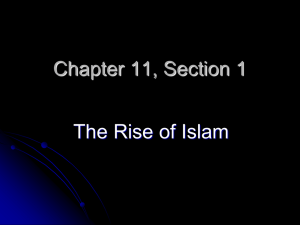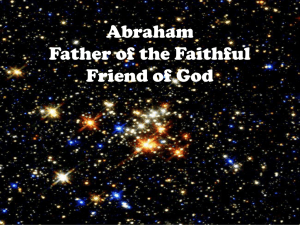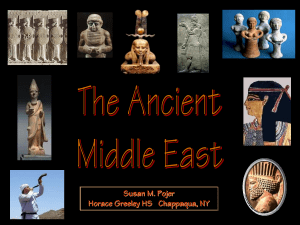LP5_Kaaba
advertisement
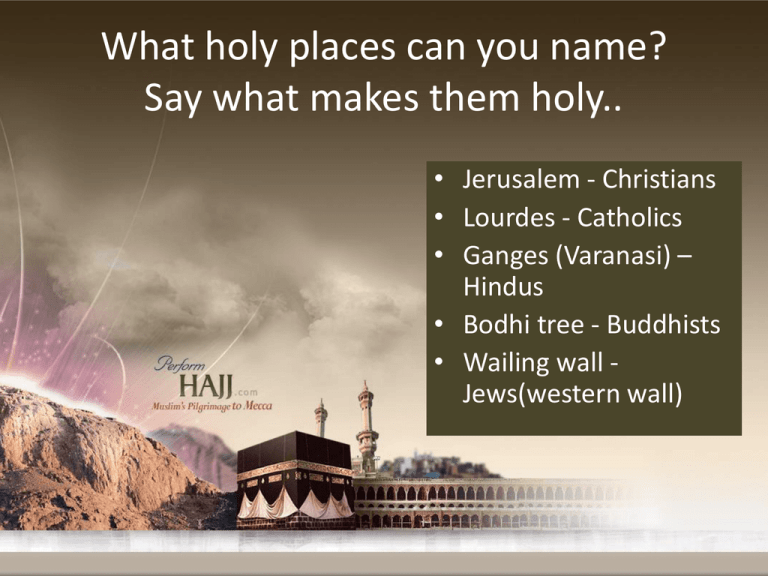
What holy places can you name? Say what makes them holy.. • Jerusalem - Christians • Lourdes - Catholics • Ganges (Varanasi) – Hindus • Bodhi tree - Buddhists • Wailing wall Jews(western wall) The Kaaba: Holiest place in Islam • To describe what the Kaaba is • To contrast different accounts of the Kaaba • To evaluate why the Kaaba is imoprtant to Muslims 1. Read your account about the Kaaba. Answer the questions about it. 2. You will be told when to swap. Then answer the questions for the second account. *Draw pictures for each account, to show how they are different. 1. Nonmuslim version 1. 2. 3. 4. 1. Explain two differences between the 2 accounts. Explain two similarities. **Which version do you prefer to believe and why? Moon god Hubal, chief god of other 360 idols worshipped there. Kaaba was built for Hubal 400 yrs before Muhammad*. No evidence of a Kaaba before that. Crescent moon on the roof The black stone is a meteorite – but because it came from heaven, it was believed to link heaven and earth – Mecca the gate of heaven and holy centre of world. M* removed idols, forbade worship of Hubal, dedicated it to Allah for the first time. He kept the black rock, but moved it to corner. 1. 2. Qu’ran version Qu’ran says that Abraham (&Ishmael) built the original Kaaba, 1000 years BC. If true, this would make the Kaaba the first temple ever built to the One God. It became corrupted with idol worship Qu’ran says Adam and Eve were given the black stone by angel to be the first altar. Then Abraham also given it by an angel and he built the Kaaba for it. 4. Abraham told by angel to proclaim that everyone must go on pilgrimage to Kaaba. M* removed idols to restore it back to Allah. He kept the black rock, but moved it to corner. 2. 3. • What is the Kaaba? • What do Muslims believe about it? 1. Draw a picture of the Kaaba inside the Mosque alHaram. 2. Label the Kaaba, the black stone, and Abraham’s footprints. The Station of Abraham contains what is said to be an imprint of Abraham's foot. Abraham is said to have stood on this stone during the construction of the Kaaba.
